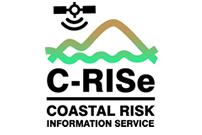Mozambique has significant coastal populations whose lives and economic security are vulnerable to the consequences of climate variability and change. The coast is highly exposed to storm surges, and coastal ecosystems are sensitive to climate change.
Access to improved information on sea level, wave and wind extremes can inform efforts to protect coastal communities and safeguard economic activity. The information can also help to improve industrial and commercial competitiveness in the maritime sector.
This training course will look at the strengths and limitations of technologies used to measure wind, waves and sea level from satellites, as well as the main applications of this data. Participants will gain hands-on experience in the use of the C-RISe data product, which brings these measurements closer to the coast.
Satellite data is particularly powerful when combined with in situ measurements, for example from local tide gauges. The course gives an introduction to sea level variability, tides and tidal analysis, quality control of tide gauge data, and methods for comparing tide gauge and satellite data to obtain the best available information on sea level variability and trends. Local agencies will be able to use the data to produce tidal predictions and pre-formatted tide tables for use by port authorities, fishermen, ferry companies, and others benefitting from tidal information.
Course Content
Monday 16 October: Introduction to C-RISe data
Morning: Introduction to C-RISe and the C-RISe data portals. Brief overviews of participants’ work and plans for using C-RISe data.
Afternoon: Exercise – selecting, viewing and downloading C-RISe data
Tuesday 17 October: Introduction to satellite altimetry and other satellite data
Morning: Introduction to satellite altimetry; measuring closer to the coast. Applications and synergy with measurement from other satellites. Sources of other satellite data and processing tools.
Afternoon: Exercise – Opening and examining C-RISe data; corrections for different applications
Wednesday 18 October: Wind and waves from satellites
Morning: Introduction to satellite ocean measurements, measuring wind and wave data. Wind and wave data processing and data product levels. Wind and wave statistics.
Afternoon: Exercise – using monthly gridded sea state data.
Thursday 19 October: Sea level and tides form tide gauge data
Morning: Introduction to sea level variability (tides, seiches, storm surges, trends). Global sea level data records from tide gauges (TG). Tides and tidal analysis.
Afternoon: Exercises – subsampling, quality control and tidal analysis of a TG time series
Friday 20 October: Combining altimetry and tide gauge data
Morning: Introduction to methods and statistics for altimetry data validation with TG observations. Analysis of sea level variability with along-track satellite data
Afternoon: Exercises – extracting total water levels and sea level anomalies; validation of altimetry data against a single tide gauge record as a function of distance from the coast. Generating easy-to-interpret sea level maps of the annual cycle, inter-annual variability and long-term trends.
How to Apply
This training course is aimed at environmental scientists who want to combine satellite data with local observations of wind, waves or sea level, and anyone who would like to participate in local C-RISe data validation. The course is free, and open to anyone from Mozambique with an interest in working with the C-RISe data. Please note that the organisers are not in a position to cover travel expenses of participants. The course will be held in English.
To participate, please contact Dr Val Byfield
You will be asked to fill in a short questionnaire and return this to help us tailor the course to your interests and experience.
On the first day you will be expected to give a brief overview of your work, and how this could benefit from access to satellite data on wind, waves and/or sea level. If you attend with colleagues with similar plans and interest, feel free to combine your presentations.

